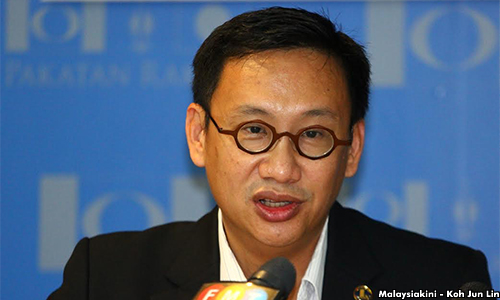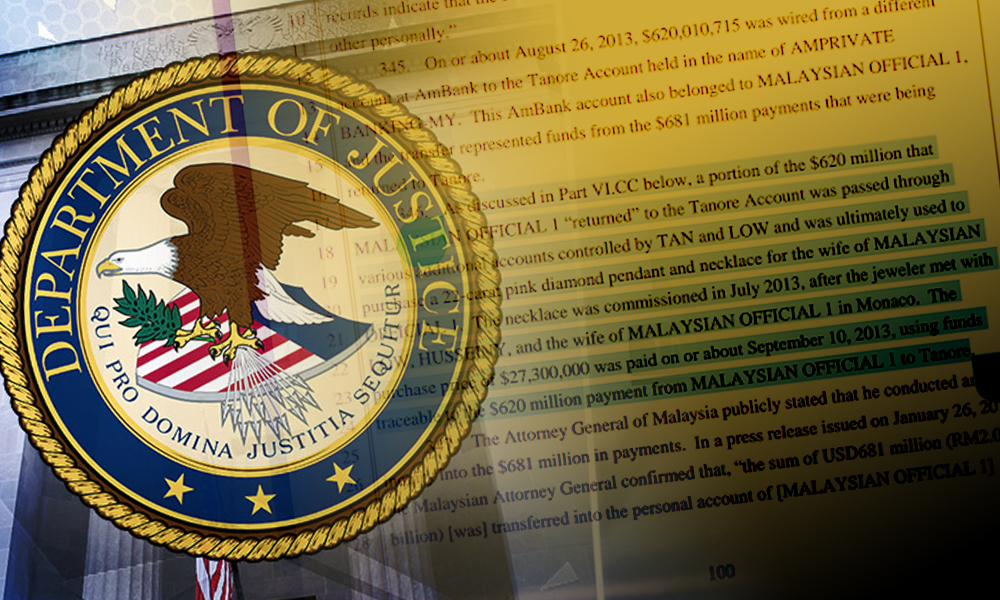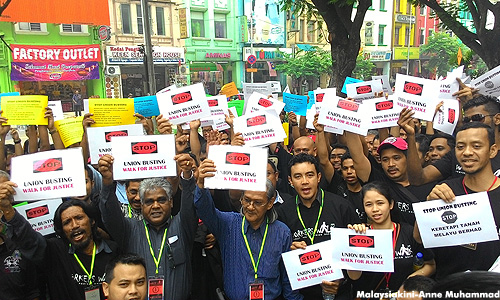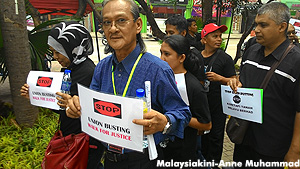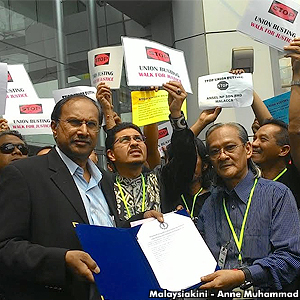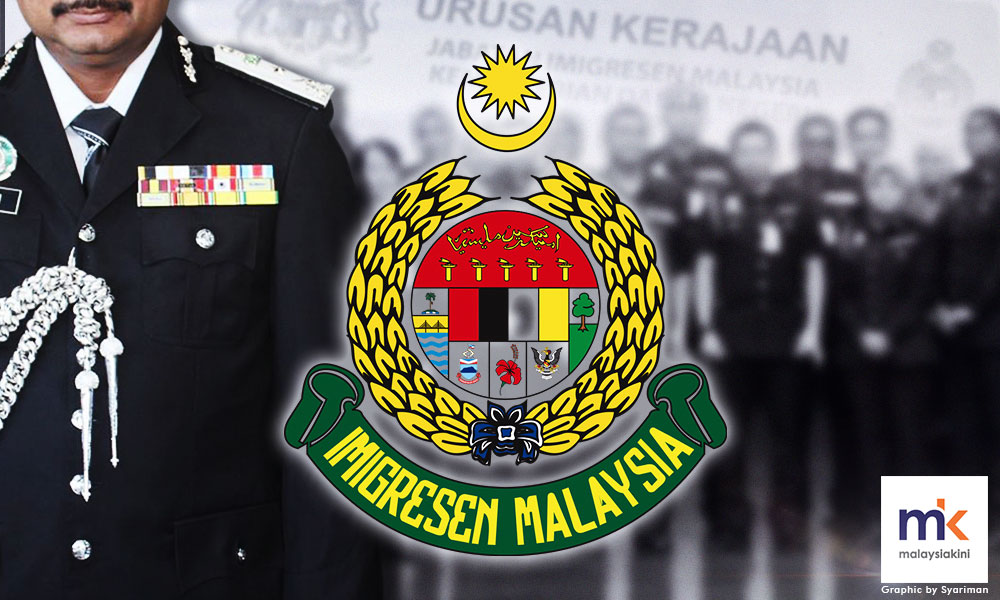And, then they carried Infineon's response..
RESPONSE TO INFINEON’S REPLY TO STATEMENT OF 55 GROUPS
This is the response to Infineon’s response to the Joint Statement of 55 groups and organisation including trade unions, that was published in the Business & Human Rights Resource Centre website. Infineon was responding to the Joint Statement of 31/1/2017 was entitled, ‘INFINEON MUST STOP UNION BUSTING AND DISCRIMINATION AGAINST UNION LEADERS -Reinstate Zulfadlee Thye Abdullah, President of Infineon Technologies Melaka Workers Union’
Response to Infineon’s assertion that statement ‘contains factually incorrect and subjective conclusions’
In Infineon’s response, it is alleged that the statement ‘contains factually incorrect and subjective conclusions’ but there is no mention at what exactly is ‘factually incorrect’, hence making it difficult to respond effectively to clarify INFINEON’s assertions.
In any event, we will respond to some of the issues raised by INFINEON. We also enclose a follow-up document entitled’ WRONGFUL DISMISSAL OF ZULFADLEE BY INFINEON’ which have also already been sent to Infineon. The said document is a more comprehensive record of facts, supported also by documentary evidence, verified by the affected Union President, Zulfadlee. It forms part of our rebuttal to Infineon’s reply.
Response to Infineon’s assertion ‘there is no truth to the allegation that Infineon is “union busting” or discriminating against union leaders and officers.’
Infineon states that ‘there is no truth to the allegation that Infineon is “union busting” or discriminating against union leaders and officers.’ This can quickly be rebutted by the following points:-
a) Whilst about 40 employee and union members took part in the said Union rally, disciplinary action has only been commenced on the Union President, and then 6 other Union leaders. The Union President was wrongfully dismissed, and the other Union leaders were allegedly given lesser punishment of warnings. This, itself, suggest the targeting of Union leaders.
b) The fact that Zulfadlee was the Union President was a consideration, possibly a material consideration, in the disciplinary proceedings against an employee. The disciplinary proceeding, from the decision to initiate disciplinary action to the final rejection of the appeal, should never been based on the fact that he was the Union President. This is evidenced by, amongst others, Infineon’s own letter rejecting the employee’s appeal against the decision to dismiss dated 6/1/2017 - ‘…The basis of our decision was premised on the fact that the Management could not condone nor mitigate punishments for a serious act of misconduct committed by a Union President…While that may ordinarily be a mitigating factor in considering any appeal, the Management has decided that the your act of malingering is deemed to be unacceptable and is aggravated in view of you being the Union President’. This letter is undisputable documentary evidence, and is also included in the follow-up document attached below.
c) The law in Malaysia is settled that a Union President or office bearer or a union member, even if he has been dismissed, more so if he claims wrongful dismissal, continues to be the Union President until the dismissal matter is ultimately resolved in the courts, and as Union President, he has the right to carry out all his functions and responsibilities. This matter was brought to the attention of Infineon, but disappointingly Infineon has specifically denied Zulfadlee entry and/or access to even the Union office, and also be involved in the Collective Bargaining process between the Union and Infineon. See email from Infineon dated 17/1/2017, which is also included in the attached document.
d) The action against the other 6, which has been alleged to have ended with ‘warnings‘, may bring about ‘greater pressure’ on these leaders, which may even result in the union being compromised. A warning impacts to promotions and increments, as seen in in Infineon’s own document on Misconducts found in the attached documents. It would affect the way a Union may behave after this? Will they be more agreeable with Employer demands? Will they not fight as hard for workers? Only time will tell – but the risk is high that following the disciplinary action taken against the President and 6 others in the Union Committee, the Union maybe less demanding and more accommodating to the demands of the Company.
Response to Infineon’s assertion that ‘the reason for the dismissal was a misconduct committed’
a) Infineon allegations that the reason for the dismissal was a misconduct committed but it must be pointed out that it was not a misconduct listed in Infineon’s own comprehensive and specific list of misconducts that covers both expressed and implied breaches of contract. It is wrong to create a new misconduct, that never existed before just to take disciplinary action against an employee. An act of malingering may be a misconduct for many other employers, but in this case, it is not in the list as contained in INFINEON Technologies (Malaysia) Sdn. Bhd’s document entitled Policy for Misconduct and Disciplinary, which is also in the attached document.
b) In Malaysia, even in a situation when an act of malingering is a valid employment misconduct (not so in our case), the courts considered this was merely a ‘technical misconduct’ certainly not one warranting dismissal. In that case, the worker had played football when on sick leave. (Azali Elias V. Crown Jewel Hotel Industrial Court, Penang, Award No: 331 Of 2008 Case No: 9/4-1634/05, 26 February 2008).
Response to Infineon’s assertion ‘…the employee did admit his misconduct towards the company…’
Infineon alleged that ‘…the employee did admit his misconduct towards the company…’ but provides no reference as to when and/or where this admission happens. As such, it makes it difficult for us to respond to this assertion by Infineon. In any event, our brief response is as follows:-
a) In fact, after perusal of all the relevant documents, he never admitted to committing any act of malingering, an employment misconduct. In his letter dated 9/11/2016 in response to Infineon’s allegation, he clearly says, “…I would humbly explain and mention that my action on the 18" October 20 16, did not break any rules or procedures in the Employment Act 1955 (Section 60 - Medical Leave), Company Policy For Sick Leave & Hospitalization and also the Company Policy for Misconduct and Disciplinary Action…”. This letter can be seen in the attached document below.
b) One cannot be guilty of a misconduct that did not exist at the time when it is alleged to have happened . The existing list of misconducts in Infineon Melaka do not make committing ‘an act of malingering’ a misconduct. The charge levied against Zuldfadlee also does not make reference to any of the listed misconducts in Infineon Melaka. An admission to a misconduct that did not even exist at the material time is irrelevant and meaningless. In any event, we find no admission of committing misconduct. A new misconduct cannot be created unilaterally by an employer, it must be done with the agreement of both the employer and the employee(and/or union).
c) Admission to an allegation (or ‘misconduct’) not clearly explained and/or understood to the accused will be no real admission in law. To allege a worker had committed a misconduct, in this case being an ‘act of malingering’, in English to a worker more proficient in the local language of Malay, and not to properly explain at any time as to what is the real meaning of the charge of committing an ‘act of malingering’ is very wrong. One cannot admit to a charge one does not understand.
d) The charge against the employee was also made further confusing when it included the fact that he was on sick leave and had participated in a union activity on the said date – this would tend to give the wrong impression to a worker. He/she may be misled into believing that ‘an act of malingering’ means the participating in a union activity whilst on sick leave (a non-working day). That clearly is not the meaning of this misconduct – it means pretending (or feigning) illness to avoid work. What a worker was seen doing whilst on paid sick leave may only be the basis for the Employer suspecting that there may be a possibility that an ‘act of malingering’ may have been committed by the said worker - but it certainly is not proof that an ‘act of malingering’ was committed.
e) Infineon had never did adduce any proof that Zulfadlee had lied about his condition to obtain the sick leave, OR that he ‘feigned illness’ to avoid work. To prove that one committed an act of malingering, it must be proven that he pretended to be sick(when not really sick) for the purpose of avoiding work. Here, in our case, Zulfadlee was examined by a qualified doctor from Infineon’s own panel clinic who certified that he was indeed sick and his condition warranted the issuing of a medical certificate which made him entitled to a paid sick leave(a non-working day). Being still not well, the following day, Zulfadlee saw a specialist doctor, and was again given paid sick leave for another 3 days. A radiology report confirms that he indeed had a genuine medical problem, being a stone in the bladder/kidney. As such, to suggest that Zulfadlee was feigning illness would be irrational and without basis. These documents are also in the attached document below.
f) Zulfadlee has never denied the fact that he did attend the Union activity, and he has always maintained that this decision to participate in the union activity was made after he had seen the doctor, and after he was already on sick leave. The decision to go and participate was a last minute decision, certainly not the reason why he went to see the doctor in the first place.
g) In Malaysia, a paid sick leave is a right in law, and is a paid ‘non-working day’. As such, this dismissal goes against Infineon’s own position, as stated even in Infineon’s own response, i.e ‘…Union members (and union leaders/officers) are entitled to attend union activities when they are free (e.g. while on annual leave or on non-working days)…’. A paid sick leave is such a ‘non-working day.
h) Zulfadlee was allegedly also given false representations by Infineon’s management staff, i.e. that the employer was unhappy with his attendance at a union activity whilst he was on sick leave, and if he was willing to admit to that ‘mistake’ and apologize, all will be well. This misrepresentation would have also aggravated the misunderstanding as to the alleged misconduct of committing an ‘act of malingering’ was. This representations (or misrepresentations) of the employer’s officers/agents may have also affected his conduct in dealing with the charged levied against him.
i) Even the Domestic Inquiry would not be considered a valid Domestic Inquiry as required by law and/or justice. There was no right to be represented by a lawyer, a union representative or some other. The charge was also invalid and void, for reasons already made. It was defective – confusing, unclear, never explained and most importantly not an agreed misconduct in Infineon Melaka at the material time. Even when translated to Malay, on the request of Zulfadlee, it was not even an accurate translation, and can be said to be misleading. As the Domestic Inquiry was considered invalid, certainly not in accordance to the accepted standards of justice, we choose to not discuss that too much at this stage.Now,if he was represented by a good lawyer, we would most likely be where we are today – Zulfadlee would have been happily working in Infineon.
Response to the assertion ‘Infineon does not want to go into more details until the administrative/judicial process brought by the employee is completed.’
a) This matter is NOT yet before the Industrial Court, and there is nothing preventing Infineon and Zulfadlee, the dismissed Union President, from resolving this matter now, and ensuring that justice is done. The Union President is ready, but Infineon seems not.
b) In Malaysia, a dismissed worker MUST file a complaint at the Industrial Relations Department (IRD) within 60 days if we wants to claim reinstatement. The IRD will then call both the Employer and Wrongfully Dismissed Worker and attempt a Conciliation.
c) If conciliation fails, the matter is referred to the Minister who then decides whether to refer the matter to Industrial Court or not – only about 60 over percent of cases gets referred. If not referred, the worker can still apply for Judicial Review at the High Court – but the cost is high and most workers simply will not be able to afford it and justice will not be done. If the Minister refers a case to the Industrial Court, then the case will proceed – but it all takes a very long time in Malaysia. As an example, the case Wan Noorulazhar bin Mohd Hanafiah, an employee of RENESAS who is the President of the Electronic Industry Employees Union Western Region, Peninsular Malaysia (EIEUWR) was dismissed on 26/8/2011 by RENESAS, is still yet to be disposed by the Industrial Court after more than 5 years. Now, even if the worker is successful at the Industrial Court, the Employer usually appeals, and when all is done it may be about 9 years or even more.
d) Even when a matter is before the court, there is nothing preventing an earlier and speedy resolution of the dispute. To choose to simply wait for the courts to finally resolve the dispute, more so in a situation where the parties are certainly not in equal footing, as in this case between an employer who continues unaffected as to business and profits, and an employee who has now lost his employment and income, is certainly no action or conduct of a just employer.
e) If the case in courts takes too long to resolve, even when the wrongfully dismissed workers wins, the court may most likely not consider ordering reinstatement viable, but may simply order compensation in lieu of reinstatement. In Malaysia, the law was amended several years ago, despite the protest of unions and workers, and a maximum limit has been placed on compensation in lieu of reinstatement - no more than 24 months back wages. This is highly prejudicial to workers especially when wrongful dismissal cases takes so long to end. Previously, before the amendment, the worker would have been entitled to back wages from the day of wrongful dismissal or until at least the date of final judgment.
f) In Malaysia, even when the affected worker is a union member, unions may not be able to bear the cost and expense of a prolonged legal battle, and the affected worker will end up paying the legal fees and the cost of struggle in court. Both parties will already have to bear their own legal fees, but when the case goes to the High Court, there is additional question of cost.
g) In the Industrial Court, there is no cost that the loser will be ordered to pay the victor, but when the matter reaches the High Court, the Court of Appeal and the Federal Court, the courts will generally order the loser to pay cost to the winner, and this can be very high possibly even tens of thousands of ringgit.
h) With the new limit of merely 24 months back wages, most workers would not be able to continue their struggle and would simply give up – Justice will not be done. Even if they are finally successful, workers may end up paying their lawyers even more than what they get. High waged or richer workers maybe able to afford a prolonged battle in the Malaysian courts, but lower waged workers (including possibly Zulfadlee) may not be able to afford the cost and time of a long legal battle.
i) Infineon must be fully aware of this fact, as such the taking of the position of waiting ‘…until the administrative/judicial process brought by the employee is completed...’ can be considered unjust and an anti-human rights position.
j) As such, we hope that Infineon would change its position, and choose to ensure that justice is done speedily now. Justice delayed is justice denied.
k) Considering additionally, that this is a case of the Union President. One must consider the impact that it may have on the Union, its members and also other workers at Infineon. It may result in a weak, fearful and ‘friendly’ trade union, which we hope is not what Infineon wants. In its Business Conduct Guidelines, it says that Infineon “…respect and acknowledge the right of employees to form representative bodies to conduct collective bargaining negotiations on working conditions…”, and a weak or ‘compromised’ union will surely not be the kind of union that Infineon, that ‘…respects worker and human rights…”, will want or is it?
INFINEON should be committed to Much Higher Standards not simply Malaysian standards or Infineon Melaka’s standards
a) In its Business Conduct Guidelines, Infineon that it is ‘…especially committed to respecting and protecting human rights and have undertaken to uphold the principles of the United Nations Global Compact in relation to human rights, labor standards, …Infineon also claims that they ‘…observe and promote the basic fundamental principles defined in the conventions of the International Labor Organization (ILO).
b) Infineon, being a German Company, is also bound by the OECD Guidelines. As a member of the Electronic Industry Citizenship Coalition(EICC), it is also bound by the EICC Code of Conduct. Being in the supply chain of major brands like Apple, BOSCH, Philips, Microsoft, Hewlette Packard, Dell and Continental, it is also bound by their Codes of Conduct, Standards and Best Practices.
c) It is sad that in its response, Infineon seems to be only looking at its own compliance guidelines and the local Malaysian labour laws, when it should be guided by these higher standards and best practices.
e) Malaysia has not even ratified all the core ILO Conventions. When Malaysia wanted to be part of the Trans Pacific Partnership Agreement (TPPA), Malaysia had to enter into an Agreement with the United States to make substantial amendments to most of its existing labour legislations, a condition that it had to fulfil, before it could be a party to the TPPA. These amendments were being prepared to be tabled, which we hope still be tabled soon despite recent development that may not see the TPPA going forward. Infineon, should be looking to the higher standards and international best practices rather than simply looking at lower standards in Malaysia.
d) It must be pointed out here, that we have yet to highlight points of non-compliance of the UN Global Compact, OECD Guidelines, EICC Code of Conduct, basic fundamental principles of ILO, and other standards and codes of conducts including also INFINEON’s own conduct guidelines. This will be done at a later date, if still deemed necessary.
e) In the Infineon’s response, there was mentioned about disciplinary actions taken against ‘6 other union leaders for misconduct’. We believe there are valid concerns about these actions too, but at this time we choose not to deal with this. We have also not dealt with some other minor issues raised, but we believe that we have raised some points on the main issues contained in Infineon’s response . If needed, we may provide a further response later, or maybe even provide a further reply, if needed, when Infineon responds to this response.
It must also be pointed out that the GoodElectronics and the other 54 groups that are co-signatories of the Joint Statement dated 31/1/2017, did consider the relevant facts, the law and international standards and best practice, and we stand by this statement and urge Infineon to immediately comply with the stated demands.
This document entitled’ WRONGFUL DISMISSAL OF ZULFADLEE BY INFINEON’ is also included as part of our response to Infineon’s reply.
We verily believe that Infineon at Melaka(or some officers there), may have made a mistake, and we hope that in all fairness, Infineon would do the needful, as per our demands and more. Infineon must demonstrate that it will ‘…take decisive action against any form of discrimination..’ – in this case a discrimination against an employee/s possibly by reason of the position he/ they held in the union?
We also hope that Infineon will immediately stop preventing the Union President from carrying out his duties/responsibilities. He should be allowed to enter the Union office.
Justice Delayed is Justice Denied. Zulfadlee, the Union President, has indicated that he is ever willing to return to work, and has also indicated that he would not hold any grudge against the company, and will also endeavour to move forward in the spirit of industrial harmony between the Union and Infineon.
As such, we hope that this ‘mistake’ could be speedily resolved, without any further delay.
# The document entitled WRONGFUL DISMISSAL OF ZULFADLEE BY INFINEON is attached here.
Charles Hector
Syed Shahir bin Syed Mohamud
Mohd Roszeli bin Majid
Pranom Somwong
For and on behalf of the 55 organisations, trade unions and groups listed below
ALIRAN
Asociación de Trabajadoras del Hogar a Domicilio y de Maquila–ATRAHDOM,Guatemala C.A.
Association of Human Rights Defenders and Promoters- HRDP
Building and Wood Worker's International (BWI) Asia Pacific
CEREAL Centro De Reflexión Y Acción Laboral (CEREAL), México
Center for Alliance of Labor and Human Rights (CENTRAL) - Cambodia
Christian Development Alternative (CDA), Bangladesh
Clean Clothes Campaign International Office(CCC)
Club Employees Union Peninsular Malaysia
CWI (Committe For Workers International) Malaysia
Electrical Industry Workers' Union(EIWU)
Electronics Industry Employees Union Southern Region Peninsular Malaysia(EIEUSR)
Electronic Industry Employees Union Northern Region Peninsular Malaysia
GoodElectronics Thailand
IndustriALL Global Union
Institute for Development of Alternative Living (IDEAL)
Kesatuan Eksekutif AIROD
Kesatuan Pekerja-Pekerja Mitsui Copper Foil(MCFEU)
Kesatuan Pekerja-pekerja Perodua EngineManufacturing Sdn. Bhd
Kesatuan Pekerja-Pekerja Perusahaan Otomobil Nasional Sdn Bhd (KPP Proton)
MADPET [Malaysians Against Death Penalty and Torture]
Malaysian Trade Union Congress(MTUC)
Movimentu Kamponezes Timor Leste-Mokatil
National Union of Bank Employees (NUBE)
National Union Employees in Companies Manufacturing Rubber Products (NUECMRP)
National Union of Flight Attendants Malaysia (NUFAM)
National Union of Transport Equipment & Allied Industries Workers (NUTEAIW)
North South Initiative (NSI)
Paper Products Manufacturing Employees’ Union of Malaysia (PPMEU)
Parti Rakyat Malaysia(PRM)
Pertubuhan Angkatan Bahaman, Temerloh, Pahang, Malaysia
Persatuan Komuniti Prihation Selangor & KL
Persatuan Sahabat Wanita Selangor(PSWS)
PINAY (The Filipino Women's Organization in Quebec), Canada
Progressive Voice, Myanmar
PROHAM -Persatuan Promosi Hak Asasi Manusia
Sawit Watch, Indonesia
Solidarity of Cavite Workers (SCW), Philippines
SUARAM (Suara Rakyat Malaysia)
Tenaga Nasional Junior Officers Union (TNBJOU)
WH4C(Workers Hub For Change)
Workers Assistance Center, Inc., Philippines
Yayasan LINTAS NUSA, Batam-Indonesia
Global Women's Strike UK
Legal Action for Women UK
Women of Colour GWS
MTUC Selangor & Wilayah Persekutuan
Pusat Komas
SHARPS, South Korea
GoodElectronics International Network
CIVIDEP, India
Students & Scholars Against Corporate Misbehaviour (SACOM), Hong Kong
Parti Sosialis Malaysia (PSM)
Jaringan Rakyat Tertindas (JERIT)
Community Development Centre (CDC)
#####
The Infineon RESPONSE
Dear Ms Isabel Ebert,
Infineon employs ca. 8,000 employees in Malacca, Malaysia. The plant is Infineon’s biggest semiconductor production site worldwide. Infineon is well respected as a good and responsible employer in Malacca, and has been cultivating long-term and trusting relationships with employee representatives. Infineon enjoys an excellent reputation in Malaysia.
The report of January 31 by Good Electronics is known to us. Unfortunately the report contains factually incorrect and subjective conclusions. There is no truth to the allegation that Infineon is “union busting” or discriminating against union leaders and officers. The insinuation that Infineon is taking these steps shortly before negotiations for the next Collective Agreement begin, just to prejudice union members, is ignoble.
That the events drove the timing of Infineon’s dismissal/disciplinary action; Infineon was not in control of these events. What is true is that Infineon does not tolerate or condone misconduct by its employees at any time; whether or not they are union leaders and officers is irrelevant.
Infineon is committed to human rights and worker rights. Infineon does not impinge on its employees’ freedom of association or participation in union activities. Union members (and union leaders/officers) are entitled to attend union activities when they are free (e.g. while on annual leave or on non-working days). However, the company has an obligation to investigate cases of apparent misconduct, even if those cases involve union leaders and officers. There is neither preferential treatment nor discriminatory treatment for union leaders and officers.
Infineon gave notice to an employee at the Malacca production site, who has been president of a local trade union since 2005. Reason for the dismissal was a case of misconduct by that employee in autumn 2016. The employee did admit his misconduct towards the company and the case is well documented. Infineon does not want to go into more details until the administrative/judicial process brought by the employee is completed.
We can assure you that Infineon did not make that decision easily and has carried out an in-depth examination of the case. Considering compliance guidelines and in accordance with Malaysian labour laws the local management has hereby concluded that this form of misconduct cannot be tolerated.
Also Infineon has taken decisions and dismissed employees for clear cases of misconduct – in compliance with the common application of Malaysian law.
Infineon also investigated 6 other union leaders for misconduct and discovered that they acted contrary to Malaysia’s Industrial Relations Act and contrary to the existing Collective Agreement between the union and Infineon Malaysia. Therefore, the disciplinary action against them was justified by law. It was not done as an act of union busting, nor in violation of any of Infineon’s internal policies or the employees’ freedom of association.
Integrity is our guiding principle in dealings with our customers, shareholders, business partners, employees and the general public. We expect from all employees on all levels – especially high-ranking colleagues – a professional conduct according to the rules. Outlining the important regulations and provide support in legal and ethical questions, the Infineon business conduct guidelines apply to all persons employed at Infineon and members of corporate bodies of Infineon Technologies AG and its affiliates worldwide. We are absolutely bound by it.
2The business conduct guidelines is available on our website:
http://www.infineon.com/cms/en/about-infineon/investor/corporate-governance/compliance/business-conduct-guidelines/
Please contact me if you have further questions.
Yours sincerely,
Alexander Trost
Vice President, Human Resources
Infineon Technologies Asia Pacific Pte Ltd
8 Kallang Sector
Singapore 349282
+65 6876 2020
alexander.trost@infineon.com
